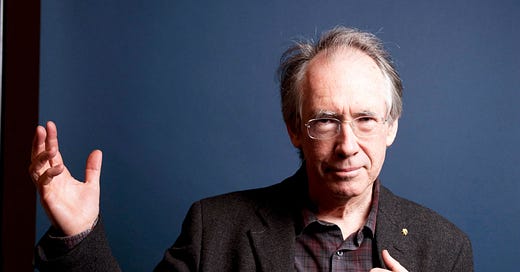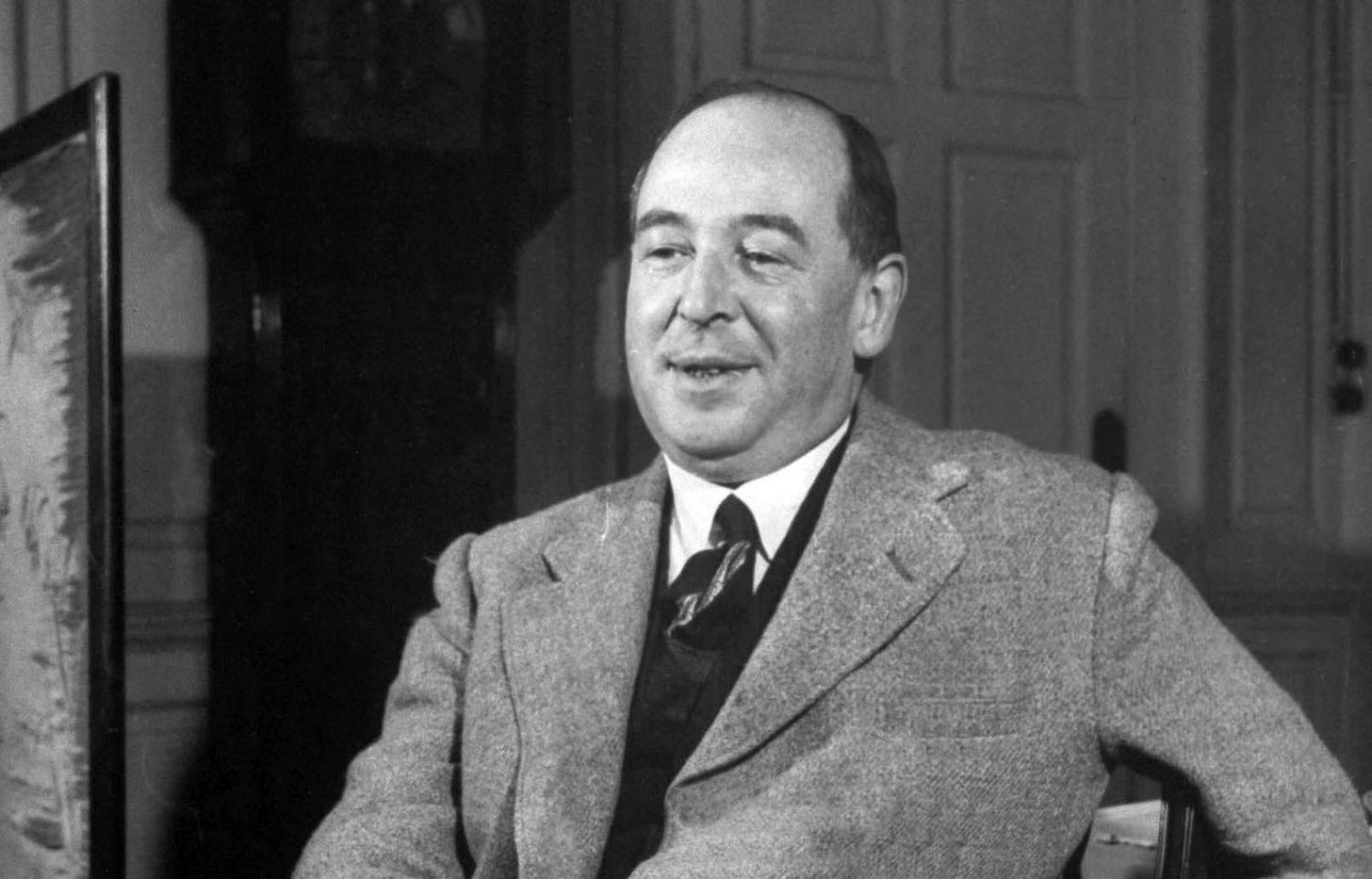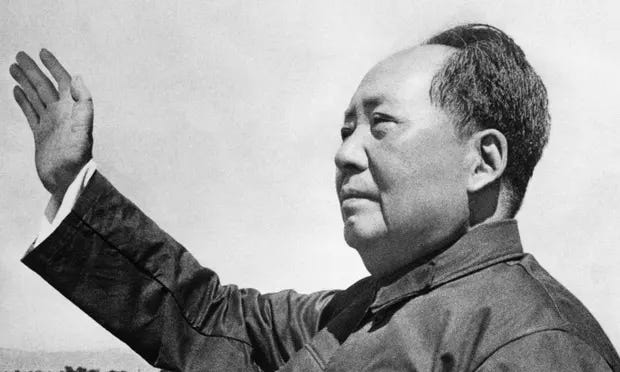Author and atheist Ian McEwan lamented the fact that atheists don't speak out more about the value of their philosophy. The implication being that their silence is evidence of apathy, or even fear of persecution.
McEwan, whose book Atonement, was turned into a major motion picture, told The New Republic:
“I think it is important that people with no religious beliefs speak up and speak for what they value.
“It is a bit of a problem, the title ‘Atheist’ - no one really wants to be defined by what they do not believe in.
“But it is crucial that people who do not have a sky god and don't have a set of supernatural beliefs assert their belief in moral values and in love and in the transcendence that they might experience in landscape or art or music or sculpture or whatever.”
McEwan is right that atheists have a problem speaking up for what they do believe in, since by definition an atheist is absolutely certain that there are certainly no absolutes to believe in.
Atheism is, to quote GK Chesterton …
“The most daring of all dogmas since it is the assertion of a universal negative”.
How does one paint a positive vision when, as Nobel Prize winning biologist Jacques Monod, put it, “man knows he is alone in the universe’s unfeeling immensity, out of which he emerged by chance”?
One of the great benefits of spiritual faith is that it has the power to help people transcend the drudgery of daily life and be inspired by a higher calling. ‘
McEwan says that atheists need to assert that they too can transcend the here and now by way of experiencing a landscape or a piece of music “or whatever”.
But how does atheism do this?
If the world is nothing more than a random collection of atoms bumping about together then there is no such thing as beauty, just tiny particles playing tricks upon the human mind.
It is for this reason that staunch atheist CS Lewis began to disbelieve his unbelief. He could not accept that the music of Wagner was simply a random collection of noises. He found it beautiful. But if atheism were true, there was no such thing as beauty. All that he enjoyed and found lovely was a mirage.
I find it fascinating that atheists who believe with Stephen Hawking that “human beings are nothing more than chemical scum on the surface of the earth” acknowledge the need for us to transcend anything at all. Is it not odd that chemical scum would even want to transcend?
Of course, it becomes impossible to move beyond that which you assert there is nothing beyond!
It is difficult for atheists to offer a vision of transcendence when they describe life, as Theodore Dalrymple did, as no more than “a brief flowering, or interlude, between two eternities of oblivion”.
How does one create hope when one believes with Jean-Paul Sartre that …
“We are not like paper or knives, designed to fulfil a determined function. We are more like bits of flint found on the beach, which can be put to many uses without being essentially ‘for’ anything”
McEwan also wants to affirm that atheists do have morals.
This, of course is something that no-one would dispute. The challenge though is the question of where those morals came from. How did Monod’s “unfeeling immensity” produce people with a strong sense of justice?
As the high priest of the so-called ‘new atheists’, Richard Dawkins, wrote:
“There is, at the bottom of it all, no good, no evil, no purpose, nothing but blind pitiless indifference. DNA neither knows nor cares. DNA just is. And we dance to its music.”
The assertion that atheists too have morals weakens the atheist’s argument that God does not exist. Surely an adherence to a higher law is evidence of a higher power.
An atheist would counter that his morality is not a belief in a higher law but rather a sense of what he himself believes to be right and wrong. And it is here that the atheist attempts to build a tower of morality on a foundation of quick sand.
If morality is based on what a person believes in his heart to be true … then there is no truth or in fact morality, only opinions.
The Nazi vision of morality is no more right or wrong than our vision of morality. It’s all just opinion. And so, the atheist takes a stand for morality with his feet planted firmly in mid-air!
Aldous Huxley understood this well when he admitted in his appropriately titled book ‘Ends and Means’ that …
“I want this world not to have meaning because it frees me to my own erotic and my own political pursuits”.
Chairman Mao’s attitude toward morality is incredibly instructive in this regard. Mao, who presided over the communist state of China where atheism was the official philosophy, said:
“I do not agree with the view that to be moral the motive of one’s actions has to be benefiting others. Morality does not have to be defined in relation to others … people like me want to … satisfy our hearts. Of course, there are people and objects in the world, but they are all there only for me.”
The morality of the atheistic state allowed more than 70 million Chinese citizens to die during 27 years of peace time.
McEwan is right that atheists have morals. But, without a belief in God, their moral code is based upon nothing greater than their own fancy and whim.
Leading evolutionist Stephen Jay Gould, in his closing comments for a Canadian Broadcasting Corporation documentary called The Nature of Things, said:
“Now that we know we are not made in anybody’s image, we are free to do whatever we wish.”
As the prolific journalist Malcolm Mudgridge pointed out:
“If God is dead then someone is going to fill his place; either megalomania or erotomania, the drive for power or the desire for pleasure. The clenched fist or the phallic; Hitler or Hugh Hefner."
McEwan laments the fact that atheists are reluctant to speak out about the redeeming features of their philosophy. Are they really reluctant? Or have they just realised there is, in fact, not much to say.






In fact the atheist only believes in him or her self and uses the atheism as a license to indulge themselves.
In a sense it is a meaningless term because they have eternity in their hearts and if they find creation ‘transcendent’ then there is a spark of belief in something, even if it is only in their ability to appreciate creation.
There is so much beauty in the world, natural and man-made. There is a grand design at play. I just can't ponder this and see it as a random thing. There is something lurking behind it all.